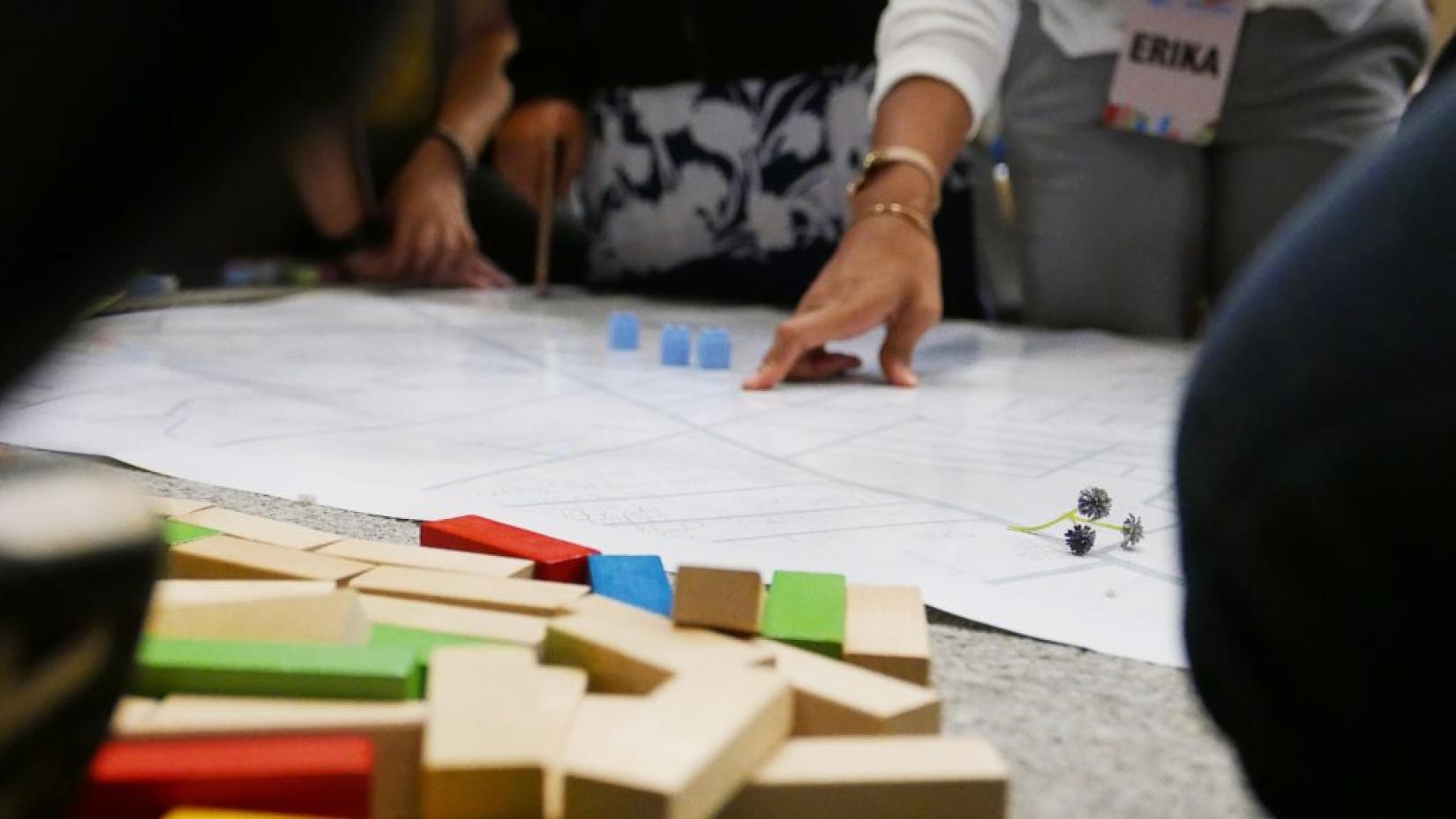UN-Habitat holds dialogue on designing pandemic-resilient cities
02 June 2020
- UN-Habitat Philippines hosts informal dialogue for partners and urban stakeholders, “Designing Pandemic-Resilient Cities: Insights from the COVID-19 Experience”

A Kapihan at Usapang Urban session, UN-Habitat Philippines’s informal dialogue platform for partners and urban stakeholders, was held on the topic “Designing Pandemic-Resilient Cities: Insights from the COVID-19 Experience”.
Attended by over 40 people, including UN-Habitat staff and representatives from national partners such as the Department of Human Settlements and Urban Development (DHSUD) and the League of Cities of the Philippines (LCP), the Kapihan aimed to 1) promote the sharing of experiences and insights on the current pandemic and its implications on resilience of cities, particularly on slums and informal settlements, urban planning and design, and basic urban services, with citations of current examples of country responses and 2) search for solutions to challenges on how to improve existing programs, projects and policies in addressing future health crises and overall resilience of cities in the emerging post-pandemic scenario.
UN-Habitat Country Programme Manager Cris Rollo shared UN-Habitat’s Covid-19 Response at the global and local levels. Guest speakers who gave technical presentations included Bert Smolders of Arcadis, who spoke on the systemic, spatial, and design interventions needed to promote pandemic resilience; Ragene Palma, urban planner and current Westminster University Masters candidate, who spoke on spatial inequality and Covid’s impact on informality; and Louwie Gan, architect and urban planner, who discussed pandemic resilience from a design perspective of Philippine spaces.
Emerging from the challenges and recommendations in the presentations were shared principles between climate resilience and pandemic resilience when it came to urban planning and design interventions, such as a needed increase in green open spaces, increased walkability, more sustainable and climate-friendly transport options, equitable access to basic and social services, improved connectivity and mobility within and among neighborhoods, better shelter planning, and a push for build-with-nature approaches. The urban poor, informal settlers and other disadvantaged groups, already with pre-existing vulnerabilities, were highlighted to be among the least resilient to the pandemic The discussion and recommendations showed how recovery from the crisis brought by the pandemic can offer opportunities to improve livelihoods, food security, environment, health, and human settlements.
Among the participants was DHSUD OIC for the Office of the Undersecretary, Commissioner Marylin Pintor who spoke on the role of DHSUD amid the Covid context and resilience building: “DHSUD is happy to participate in this learning exchange on the implications of COVID-19 on urban planning and design as the department is now addressing this pandemic within its mandates. This includes a policy allowing developers and contractors to go back to work even during the community quarantine (productive worksite quarantine). We came up with a department order setting the mandatory requirements before they be allowed to resume work and parameters on how they should conduct their work to protect their workers and customers. The department is also engaging homeowners’ associations (HOAs) for them to help ensure that health protocols are in place and disseminated among their members. Guidelines for the location of health facilities, isolation areas, crematoriums should be considered in land use plans. Urban design recommendations for sanitation and hygiene should also be promoted.”
“This exchange can help us improve our existing programs in addressing future health crises and overall resilience of cities,” Commissioner Pintor remarked.
“The pandemic opens conversations on how we can re-shape cities,“ said LCP Executive Director Gail Pamintuan. “COVID19 has exacerbated existing problems and made us reflect on the livability of our cities especially for the vulnerable sectors. We need to revisit our urban plans and designs and evaluate them using a health lens. We also [need to focus] on community and social planning so we can empower them. These people need post-pandemic support for community recovery.”
“Definitely, we need to implement bold policies that are responsive to the new normal.
LCP welcomes suggestions so they can innovate, respond effectively to crisis,” Executive Director Pamintuan said, adding that she appreciates the local initiatives and best practices shared during the Kapihan.
Results of the session aim to inform the succeeding planned sessions on urban planning and design and, eventually, the development of enhanced national and local policies.


